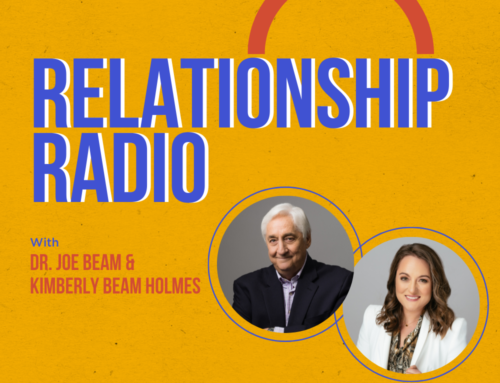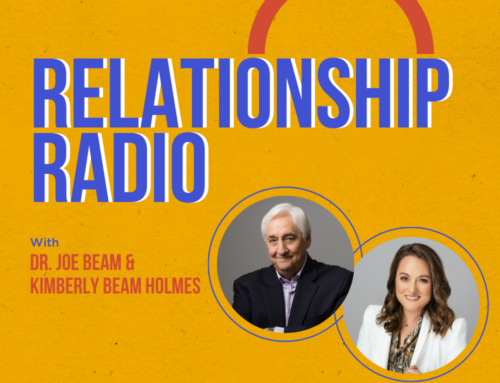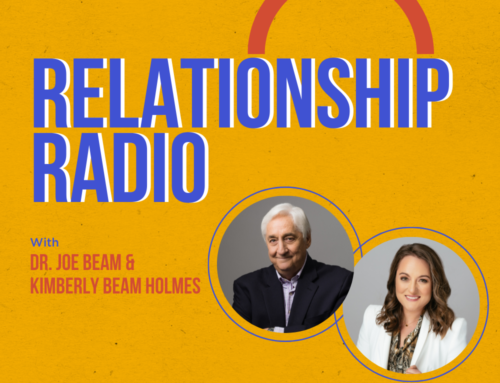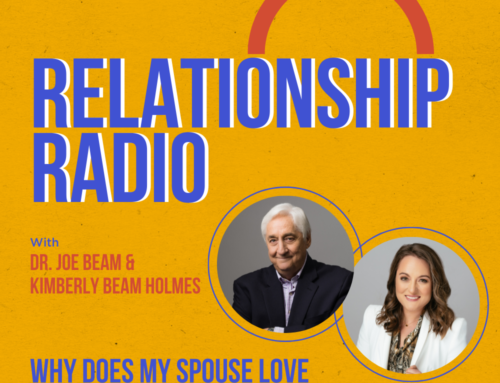Lust—that’s a powerful word. Just put that on a title anywhere, a book or magazine article, a movie, and people have to check it out to see what it is because we think we have some understanding of what lust is. Yet, at the same time, people can confuse lust and love. Is there a difference between lust and love?
Let’s look at lust scientifically for a minute.
Dr. Helen Fisher is a biological anthropologist and a fascinating lady. She and her colleagues do a lot of research about human beings, not just from the biology of who we are, but how we interact with each other—the anthropology part. And when they talk about lust, they say that lust is a desire to mate with any appropriate partner.
You see, whether we want to think about it or not, we are hard-wired to procreate; part of our brains are always looking to make a baby. I don’t care how old you are; once you hit puberty, and those hormones and testosterone start going through you, then it becomes part of what’s driving you. It’s a need or a craving to mate and create more human beings. But we live in a civilized society, and we don’t think like that anymore.
We think about it in terms of the way a person looks. You like the way a person talks. You like the way they smell. So we tend not to believe we’re being drawn toward each other because of this animalistic part of us that wants to mate.
So is lust in and of itself a bad thing?
Not necessarily. But quite often, yes.
You see, the lust part of us is thinking about pleasure, not a relationship. We are put together in such a way that we derive tremendous pleasure during the act of procreation. So, for example, the female has an organ, the clitoris, that exists for one reason, and that’s to bring pleasure.
Interestingly, the male doesn’t have an organ that exists only to bring pleasure. But the clitoris exists so that a woman will want to have sex and enjoy orgasm. And so sexual pleasure is put together very tightly by nature or God, whichever way you want to look at it, to make us want to have sex with another human being so that we can be stimulated and have pleasure.
Now, is it wrong to have pleasure in sex? Absolutely not. But think about it this way: When you’re talking about lust, you’re not talking about a relationship with the other person. When you’re talking about lust, you’re talking about having your physical and emotional needs met temporarily. And according to the definition we mentioned earlier, it can be with any appropriate person. That lust then is very personal about me and how it benefits me physically. It’s relatively short-lived. Again, it’s probably because of the wiring we have up there. And it’s short-lived in the sense that once you’ve had sex with that person, it doesn’t do away with the desire to make more babies in either males or females. So, even though you’ve reached your goal of sex, you’re still attracted to other people.
Now, let’s talk about love.
When you start talking about love, sometimes it’s difficult for people to understand. Here in America, where I am, we tend to use that word to refer to so many different emotions.
I love my car, I love my mom, I love my baby. And I love the Atlanta Braves or whichever team you like. And therefore, we’re using that same word to refer to many different emotions when it comes down to social science.
There have been many studies trying to understand love in better ways. We particularly like studies by Dr. Robert Sternberg. When Sternberg talks about love, he likes to look at the sub-components that make up the love between a husband and a wife. And he says it has three basic components: intimacy, passion, and commitment.
The passion part can exist if it’s just lust because passion has to do with strong feelings. It’s a desire to be “one”. But that desire to be “one,” if it’s just about sex, is to be “one” sexually. Once that’s consummated, that desire can go away pretty quickly.
He says that lust within the relationship built on love is not just for that one-time satisfaction. There is a craving to be “one” in terms of the other person’s life in this dynamic, which requires intimacy, transparency, vulnerability, and openness. When a person sees you for who you really are, knows what you really think, and how you really feel, you develop trust. That trust is frequently rewarded with a look into the other person, and that’s when they can begin to mesh their lives together. Of course, they won’t find you perfect, and you won’t find them perfect. But true intimacy blooms through sharing and acceptance, even when our flaws show through. And that level of intimacy leads to commitment. That’s when that person decides to spend the rest of their life with you.
Will the passion be equally strong on every day of our life from now on? No, some days it’ll be stronger, and some days, it’ll be weaker. And the sex drive over time may change to where it’s more about occasionally having sex as opposed to wanting to have sex every time you see each other. That comes with age and comes with the saturation of the relationship. You’ve been with each other so long you know all about each other, but the sex drive is still there.
Intimacy, commitment, and passion come together to constitute real love.
Lust says, “I love how you make me feel, but I’m only here as long as I get that feeling.” But love says, “I want you because I want our lives to intertwine together for the rest of our days.” Sometimes, it’s hard to differentiate at the outset because lust kind of comes with the first step of love. But if you start thinking a little bit beyond that, you’ll understand that the ultimate goal of what you want to accomplish with this person, and it will help you know the difference.
If it’s primarily “I want you,” it’s probably lust. If it’s primarily “I want us,” then it’s probably love.
Now, how can you tell as you begin to develop the relationship? As I said, sometimes lust can be very powerful at the outset. But are you listening to the other person? Are they listening to you? Are you developing a relationship where you care about each other and can be with each other long-term? The outcome of the relationship depends on whether it’s lust or love.
Lust is relatively short-lived, and at some point, it’s not strong enough to drive you anymore. And lust doesn’t handle relationship problems very well. For example, suppose you’re with this person because you lust for them and start having difficulties in your relationship. Lust can direct itself to somebody else pretty easily.
But love is long-term. It lasts a lifetime. And therefore, it tends to be able to weather relationship problems because you’re not just in it for pleasure; you’re in it for life.
If you want to understand more about the difference between lust and love, we have a free eBook that you can get here. It’s all about limerence and understanding how it relates to love.







